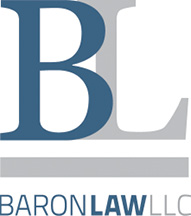Sponsored
Debt after Death – What Every Family Member Should Know
by Dan A. Baron, Baron Law LLC
You come home one day to find a letter from a credit card company. It demands an $80,000 debt incurred by your late spouse. The credit card company demands payment and threatens to take legal action against you if you don’t pay. Don’t be afraid of these bullies. Here’s what you need to know.
First, the credit card company is correct in its efforts to collect a debt from the estate. Debts do not die with the deceased but instead are administered through the probate estate, i.e. the county probate court. However, creditors cannot hold family members personally responsible for these debts. Instead, in most cases, creditors may only assert claims against the estate. If the debts exceed the value of the estate, then the creditors may not come after family members.
Of course, there are exceptions. When dealing with the debt of a deceased family member it’s important to consider whether you’re a co-signer on a note. Each account holder can be held legally responsible for an outstanding balance. Thus, if you co-signed for a mortgage or a car loan, you are still personally responsible for the debt. Using the example above, let’s say that you never used the credit card and all the purchases were your late spouse’s. Unfortunately, if you co-signed the credit card application then you’re still liable for the debts. This rule only applies to co-signers, not authorized users.
Know Your Rights
It is the role of the executor of the estate to pay the deceased’s outstanding bills. It is recommended that executors contact a qualified probate attorney to understand probate laws and processes. If you are not the executor of the estate but are receiving phone calls and/or letters asking you to pay, you should refer the creditor to the executor. If they are persistent, send a certified letter stating that the person is deceased and you are not responsible for paying the debt. Don’t let yourself be intimidated into paying a debt you are not responsible for. If the bill collector is making claims you don’t believe are true, such as saying you are a co-signer on the account, ask for proof. Let them know you are aware of your rights and will report them if they do not stop calling you. Harassing bill collectors can be reported to the Federal Trade Commission (877-382-4357) and state attorney general’s office (216-787-3030).
Avoid Scams
If you’re an executor of a family member’s last will and testament, this means that the will is going to be admitted to probate court. Having a will does not avoid probate court. In fact, as I always like to say, having a last will and testament is “your ticket to probate court.” Thus, since the will is going to a public court system, all of the information in the estate is visible through the click of a button. The executor and decedent’s name, address, phone number, and the value of the estate through a detailed asset inventory will be available publicly. The information often may lead to scams.
Avoid these scams by knowing your rights as an executor of the estate. If the creditor has not formally filed with the probate court, then these debts can probably go unpaid after six months from date of death. Also, there is a formal process for creditors to comply with, if legitimate, and if the formalities are not satisfied then the creditors are not to be paid. We see all too often in our office where families lose hundreds of thousands of dollars from making payments to creditors who either didn’t make a proper claim or were a scam.
How to Avoid Debt After Death
As stressed above, debt is only paid through a probate court process. Therefore, unless you’re a co-signer on a loan, if you avoid probate altogether then the debt dies with the deceased. It is possible to transfer your assets entirely outside probate court. For example, let’s say your father passes away and has a $70,000 credit card bill and a $55,000 medical bill. These debts are referred to as ‘unsecured debts.’ Such assets would only be required to be paid through probate court. By passing assets to loved ones entirely outside of probate, these debts die with the deceased. The question then becomes: how do I avoid probate?
Family Trust
The single best way to avoid probate is through creating a trust. Trusts are private, can provide creditor protection, asset protection, and may allow for certain tax advantages. Trusts can be funded during the lifetime of the estate planner, or after death. Trusts provide privacy and control over the assets even after you pass. There are numerous trust strategies for estates of any size. Stay tuned for more articles on trusts…
Joint Ownership
Assets owned by more than one person result in the survivor taking ownership. Examples might include a joint bank account, jointly titled real estate, and/or vehicles. Joint ownership accounts effectively avoid probate when the forms are properly completed. Most banks require a simple death certificate and identification.
Beneficiary Designations
If you receive life insurance or engage with a financial planner, you’ve probably filled out a beneficiary designation. These are very common with retirement accounts (401(k), 403(b), etc.), life insurance, annuities, IRAs, Roth IRAs, and other assets. Here you simply write in the names of those you wish to receive the assets after your death. However, I caution you to never rely on beneficiary designations without considering the asset protection and tax considerations of a trust.
Transfer-on-Death
A transfer-on-death affidavit allows you to designate the person or entity to receive your assets upon your death. Here, there may also be some creditor protection. This is another great method of avoiding probate.
For more information regarding probate avoidance or other estate planning needs, contact Dan Baron, Esq. or a member of our office. Call today for a free consultation at 216-573-3723 or dan@baronlawcleveland.com.

Sponsored By
Baron Law LLC
Crowne Centre, Suite #600
5005 Rockside Road
Independence, Ohio 44131
216-573-3723
www.baronlawcleveland.com
Opinions and claims expressed above are those of the author and do not necessarily reflect those of ScripType Publishing.

